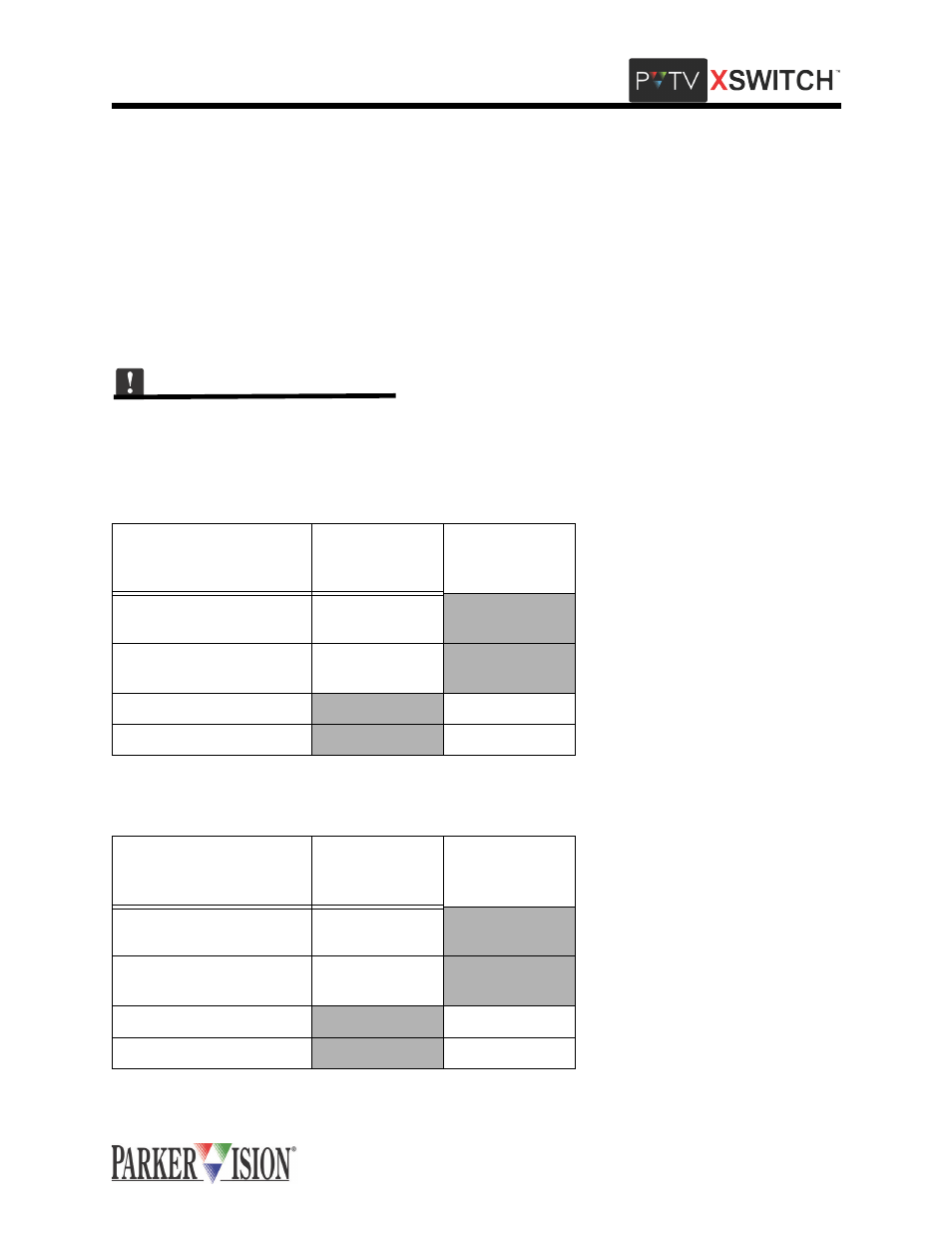Qwhufrqqhfwlrqv dqg 6zlwfklqj )xqfwlrqv – Grass Valley XSwitch Feb 01 2005 User Manual
Page 15

©2001 XSWITCH Installation and Operations Manual 13
,QWHUFRQQHFWLRQV DQG 6ZLWFKLQJ )XQFWLRQV
AUDIO SWITCH CARD INTERCONNECTIONS
Each Audio Switch Card can cross-switch two audio output sources between two receiving devices. Both
switching channels employ active balanced inputs and outputs with unity gain throughput and flat fre-
quency response across the audio spectrum. In practice, the audio output from source "A" is connected to
switch card input "A." The input of an audio receiving device is connected to switch card output "A." The
output from a second audio source is connected to switch card input "B." The input of a second audio
receiving device is connected to switch card output "B." When the switch is thrown, source "A" is con-
nected to receiving device "B" while source "B" is connected to receiving device "A." Connections are
made using standard low impedance, balanced line, shielded cable terminated with three pin XLR connec-
tors with pin-1 as ground. Because the audio switching circuitry in this card employs active electronics,
power must be on in order to pass audio signals through the XSWITCH.
There are two Audio Switch Cards in the Master Module. One card connects to Program Output Left on the
PVTV NEWS Expanded Audio Module, and the other connects to Program Output Right on PVTV NEWS
Expanded Audio Module. Refer to Tables 4 and 5 for more information.
Table 4: Audio Switch Card 1 Interconnections
CONNECT TO AUDIO
SWITCH CARD ON
XSWITCH
CONNECT TO
PVTV NEWS
OTHER
CONNECTION
A IN
STUDIO A EAM
PGM OUT Left
B IN
STUDIO B EAM
PGM OUT Left
A OUT
TO AIR
B OUT
TO AIR
Table 5: Audio switch Card 2 Intreconnections
CONNECT TO AUDIO
SWITCH CARD ON
XSWITCH
CONNECT TO
PVTV NEWS
OTHER
CONNECTION
A IN
STUDIO A EAM
PGM OUT Right
B IN
STUDIO B EAM
PGM OUT Right
A OUT
TO AIR
B OUT
TO AIR
